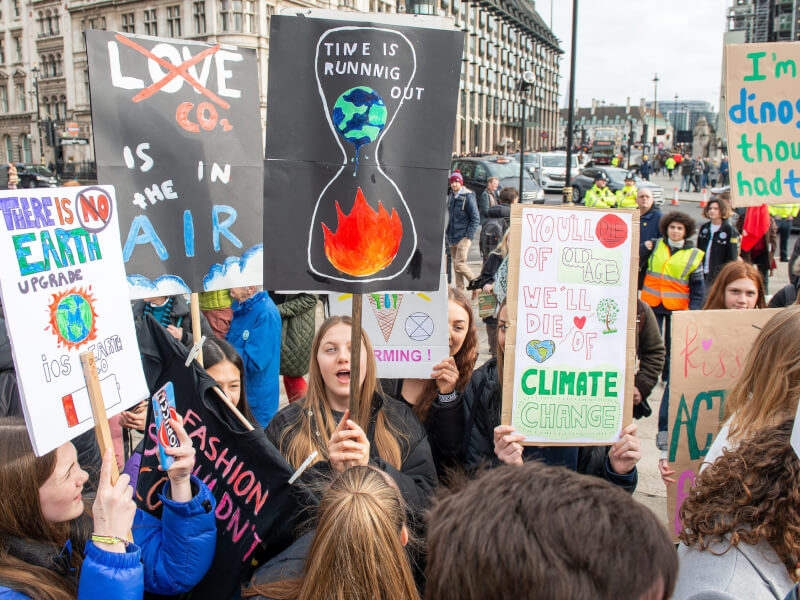16 March 2023 – We are in a desperate race to avoid locking in a pathway to human extinction. This requires brutal honesty on the threats we face. Climate change, not China, Russia or the US, is the greatest threat the world faces; it will only be overcome with unprecedented global co-operation.
Negotiating with the laws of physics is not “good” climate policy.
The current pressure on the Greens to not allow “the perfect to become the enemy of the good” in regard to the government’s Safeguard Mechanism climate policy completely misses the point.
When it comes to understanding what needs to be done to avert civilisational collapse driven by an overheated planet, you cannot compromise with the laws of physics. There can be no trade-offs, no deals, no half measures with the vast planetary interactions of physics, chemistry, geology and the biosciences that determine the state of our planet.
Don’t do enough to mitigate human-induced warming, and that warming will drive relentlessly on.
This is the only context in which to understand the government’s demand that the Greens compromise on their evidence-based insistence on no new coal and gas projects. The Green’s position is not “perfect” politics compared to a government offering a “reasonable compromise” for the common “good”. It simply recognises that trying to negotiate with the physical systems that drive our planet is suicidal.
This harks back to criticism of the Greens and their leader Christine Milne in 2009, for not supporting Kevin Rudd’s Carbon Pollution Reduction Scheme (CPRS). Criticism which was complete nonsense. The CPRS was appalling policy, shot through with escape clauses which would have prevented any serious emission reduction.
Fifteen years on, despite three decades of negotiation, global leaders have achieved precisely nothing in terms of the critical issue, namely a dramatic reduction of global carbon emissions. In stark contrast, emissions continue to rise at worst case rates, the result being that the world will now inevitably exceed the lower 1.50C temperature increase limit of the 2015 Paris Climate Agreement, and probably the 20C upper limit, irrespective of any action taken in the meantime.
The implications for humanity are horrendous. Millions of lives are already being lost annually, and livelihoods destroyed, as catastrophic impacts intensify worldwide, whether in developing countries who have done little to cause them, or in developed countries such as the US and Australia, who have been primary contributors. The social and economic costs are now a major drag on all economies.
The science has long indicated that, to avoid locking in far worse irreversible climatic tipping points, the current fashion for achieving net zero emissions by 2050 (NZE 2050) is totally inadequate. The objective must be to reach zero emissions as close to 2030 as possible (ZE 2030).
In addition to rapid emission reduction, atmospheric carbon concentrations must be drawn down from the present level of 420 ppm CO2, toward a more stable level below 350 ppm CO2. A task not even mentioned in the Australian debate.
This is a massive undertaking which requires a complete reset in global thinking on climate, encompassing every policy arena, particularly geo-politics. Climate change, not China, Russia or the US, is the greatest threat the world faces; it will only be overcome with unprecedented global co-operation rather than conflict.
In this context, the Albanese government’s climate policy is neither perfect nor good. Their 43% emission reduction target by 2030, en route to NZE 2050, is understandable, given the wish to better the opposition but not to the extent of losing the election. But it is totally inadequate practically. Upgrading the ineffective Safeguard Mechanism makes good sense in principle. But simultaneously allowing new fossil fuels projects for domestic and export use, along with the unlimited use of carbon offsets whose integrity at scale is dubious at best, whilst maintaining fossil fuel subsidies, guarantees a massive increase in emissions.
We are in a desperate race to avoid locking in a pathway to human extinction. This requires brutal honesty on the threats we face.
We should have learnt long ago that attempting to mould the laws of physics to “politically acceptable” policy is futile. It is not enough, as Climate Minister Chris Bowen puts it, to: “deliver what we promised at the election, no more no less”. In Churchill’s words “Sometimes we have to do what is required”.
Governments are elected to lead, and the first priority of any government is the security of the people. That means government must understand those threats and address them, election mandates notwithstanding.
Astonishingly, Australia has never undertaken an official assessment of climate risk, which must be the starting point for any realistic policy. Our political and corporate leaders have quite deliberately preferred not to be aware of the threat, on the grounds they cannot then be held accountable for not acting. Moral and ethical bankruptcy.
To its credit, the Albanese government has begun to rectify this failure by initiating a national climate risk assessment, but thus far it lacks a sense of urgency.
UN Secretary General Antonio Guterres has repeatedly characterised climate change an existential threat to human civilisation, a sentiment shared by Minister Bowen. Existential in this context meaning a threat posing large negative consequences to humanity which may never be undone, either by annihilating intelligent life or permanently and drastically curtailing its potential.
Yet our leaders clearly do not understand the meaning of “existential”. Perhaps not surprising, given it is outside the experience of people in politics or business today.
It is beyond belief that in 2023 Australia as the fifth largest global carbon polluter, and a supposedly responsible global citizen, can propose suicidal policy which in effect gives free rein to war-profiteering fossil fuel donors to massively expand their business and emissions.
Serious climate action today requires whole-of-nation mobilisation, akin to wartime, with all necessary resources devoted to achieving the primary objective of rapid emission reduction.
Real solutions are available, but they need to be implemented via integrated, consistent national policies to maximise their impact, with the same initiatives encouraged globally.
That does not include pouring more fossil fuel on the fire.
“You already know enough. So do I. It is not the knowledge we lack. What is missing is the courage to understand what we know and draw conclusions”
Sven Lindquist
Republished with permission from Pearls & Irritations.






